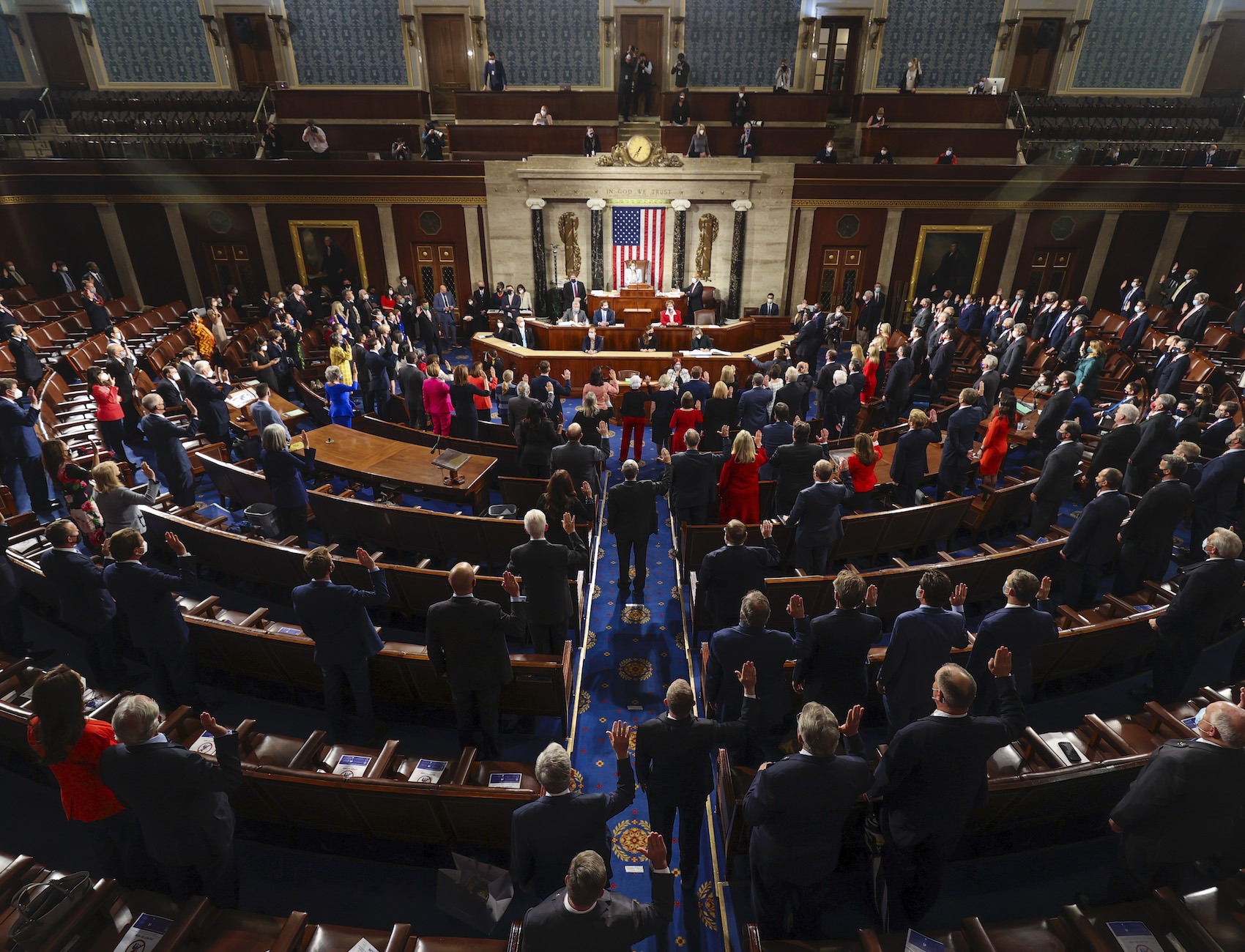American Voters Share Cross-Partisan Consensus on Wide Range of Federal Policies, Polling Shows
Voters of all stripes—Democrats, Republicans, and independents—support a range of policies by overwhelming margins.

With two wins in the Georgia runoff elections for U.S. Senate, Democrats will now control both houses of Congress and the presidency. Still, majorities in both chambers will be narrow, and the Senate’s 50-50 split will mean that more conservative Democrats like Senator Joe Manchin will be essential to passing legislation. In addition, with the filibuster still in play, many policies must command bipartisan support to pass through the Senate. Under these circumstances, some have questioned whether any meaningful legislation can pass, suggesting instead that gridlock and obstruction will be the norm, while any reform proposals with a chance of moving will be stripped to the bare minimum.
But this narrative ignores the range of policies that voters of all stripes—Democrats, Republicans, and independents—support by overwhelming margins. It focuses narrowly on political factions in Congress while ignoring how voters feel about the issues that matter most to their everyday lives. When concrete policy proposals are put directly to voters, it turns out that a broad, cross-partisan consensus emerges.
According to polling from Data for Progress and The Lab, a policy vertical of The Appeal, there is broad support for urgent policy reforms that transcend party affiliation, from direct stimulus payments and tax credits for child care; to raising the minimum wage and providing a federal jobs guarantee; to legalizing marijuana, protecting the environment, and new ways of ensuring public safety. Even if there were divided government, these policies should provide the starting point—a floor, not a ceiling—for a legislative agenda that aligns with substantial majorities of American voters.
Our findings include:
- Stimulus payments: 81% of likely voters, including 80% of Republicans, support sending $2,000 checks directly to most Americans.
- Marijuana: Most voters, including Republicans, believe that we should legalize the sale and use of marijuana, investing the tax revenue from those sales in communities harmed most by punitive drug policies: 62% of likely voters, including 60% of Republicans, support the MORE Act, which would decriminalize marijuana at the federal level, and which the House of Representatives passed in December on a bipartisan vote. Further, 63% of likely voters and 59% of Republicans support investing tax funds in the communities disproportionately harmed by prior policies.
- Non-law enforcement emergency responders: 66% of likely voters, including 74% of Democrats and 62% of Republicans, support a proposed federal grant program to provide $100 million per year in funding for community-based, non-law enforcement emergency and non-emergency response.
- Raising the minimum wage: 68% of likely voters, including 59% of Republicans, support raising the minimum wage to $15 per hour and automatically adjusting the amount each year to account for national cost of living increases.
- Federal jobs guarantee: 64% of likely voters, including 78% of Democrats and 53% of Republicans, support a federal job guarantee program as part of the government’s response to the current economic crisis.
- Childcare & Universal Pre-K: 74% of likely voters, including 67% of Republicans, support providing families with refundable tax credits to help cover the cost of childcare, and 66% of voters, including 68% of independents and 53% of Republicans, support providing all 3- and 4-year-old children with access to free, high-quality pre-kindergarten education.
- Clean energy investment: 66% of likely voters, including 54% of Republicans, support federal investment in clean energy infrastructure.

